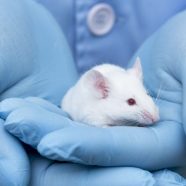
Neuren’s Investigational NNZ-2591 Rescues Motor and Cognitive Functions, Mouse Study Shows
Neuren Pharmaceutical’s candidate NNZ-2591 has shown positive effects in a mouse model of Angelman syndrome, treating all symptoms of the disease, the company announced.
These results were used to submit an Orphan Drug application to the U.S. Food and Drug Administration (FDA).
Angelman syndrome is a genetic neurological disorder caused by the loss or malfunction of the maternal copy of the UBE3A gene in neurons found in specific regions of the brain.
NNZ-2591 is an analogue of a small protein (peptide) important for the development of neurons, called cyclic glycine proline (cGP), which exists naturally in the brain. Treatment with NNZ-2591 intends to restore the normal connectivity and signaling between brain cells. It has been show to carry neuroprotective and memory-enhancing effects in multiple animal models, including fragile X syndrome, Parkinson’s disease, and multiple sclerosis.
Using a mouse genetically engineered to lack the UBE3A gene that recapitulates the human features of Angelman syndrome — including motor deficits, learning problems and altered brain connections — researchers were able to assess the effects of NNZ-2591.
Treatment for six weeks with NNZ-2591 lessened mice deficits in tests that measured their levels of anxiety and sociability. Moreover, NNZ-2591 restored mice motor performance and cognition to normal levels, while eliminating seizures.
“Neuren is now expediting the remaining tasks including the manufacturing development, toxicity studies and a Phase 1 clinical study that are required before commencing Phase 2 clinical studies with NNZ- 2591,” Richard Treagus, Neuren’s executive chairman said in a press release.
“We are targeting filing an Investigational New Drug Application (IND) with the US Food and Drug Administration and commencing Phase 2 studies in the second half of 2020,” Treagus added. That application has now been submitted.
Positive results with NNZ-2591 also were observed in preclinical models of two other diseases, Pitt Hopkins syndrome and Phelan-McDermid syndrome. Both also are caused by mutations in single genes, and like Angelman, are characterized by intellectual disability and developmental delay. Pitt Hopkins is caused by problems in the TCF4 gene, while Phelan-McDermid is caused by mutations in the SHANK3 gene.
The researchers note that the three disorders share many common symptoms, and similar impairment in the connections between brain cells.
Along with the Angelman application, Neuren filed Orphan Drug applications with the FDA for approval for NNZ-2591 to treat these two disorders.
“These disorders can often be misdiagnosed as autism, and can also be co-diagnosed with autism. Each of them is caused by a mutation or deletion in a different specific gene or chromosomal region; however typically they share many common symptoms and an underlying impairment in the connections and signaling between individual brain cells. Restoring the normal connectivity and signaling between brain cells is considered to be a central property of NNZ-2591,” Treagus said.
“We are excited that NNZ-2591 has clearly demonstrated positive and wide-ranging effects in all three of these disorders. We look forward to submitting the results for journal publication in due course. These promising results further confirm the potential of this unique neurotrophic drug across a number of neurodegenerative and neurodevelopmental conditions,” he added.

